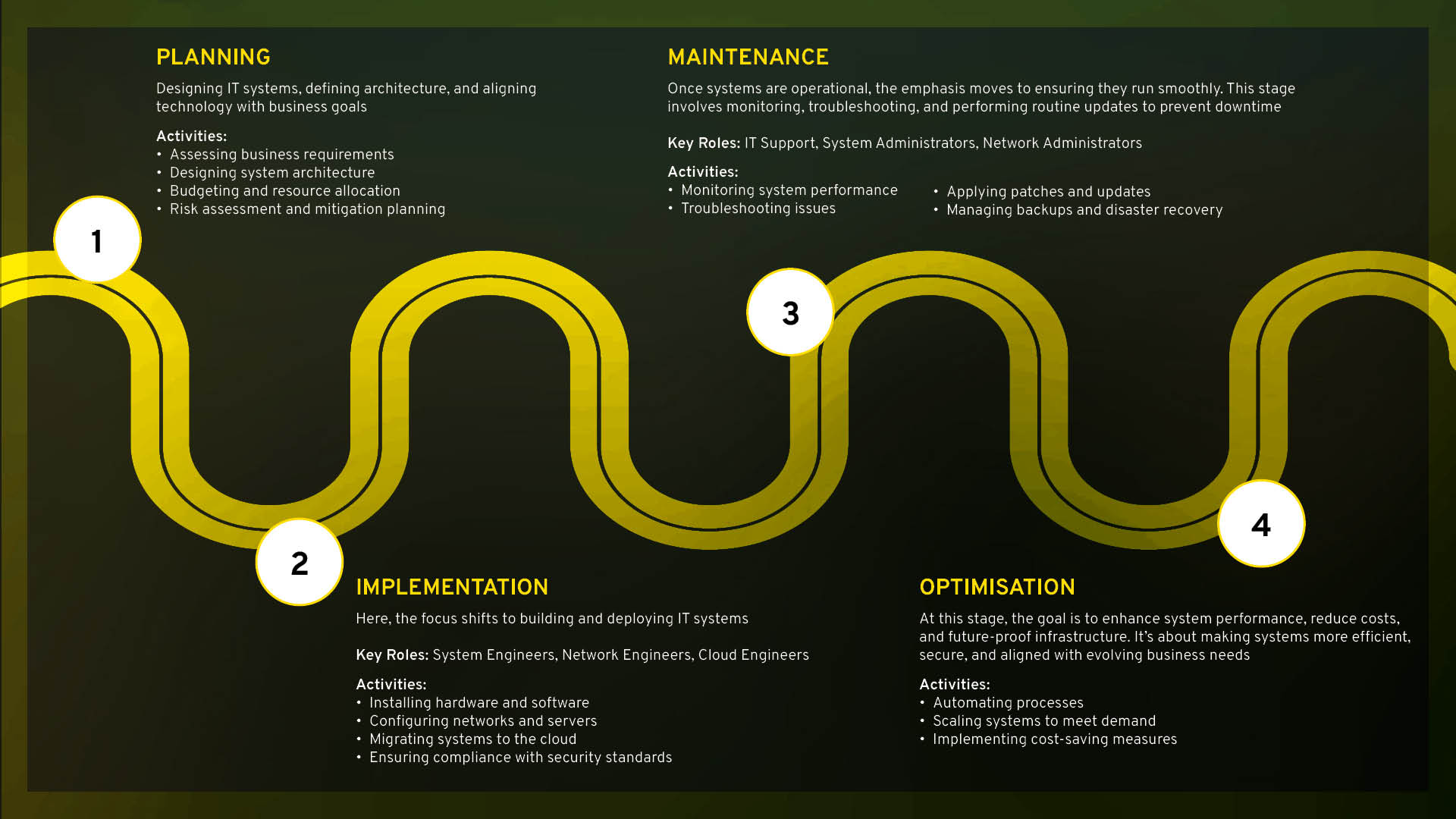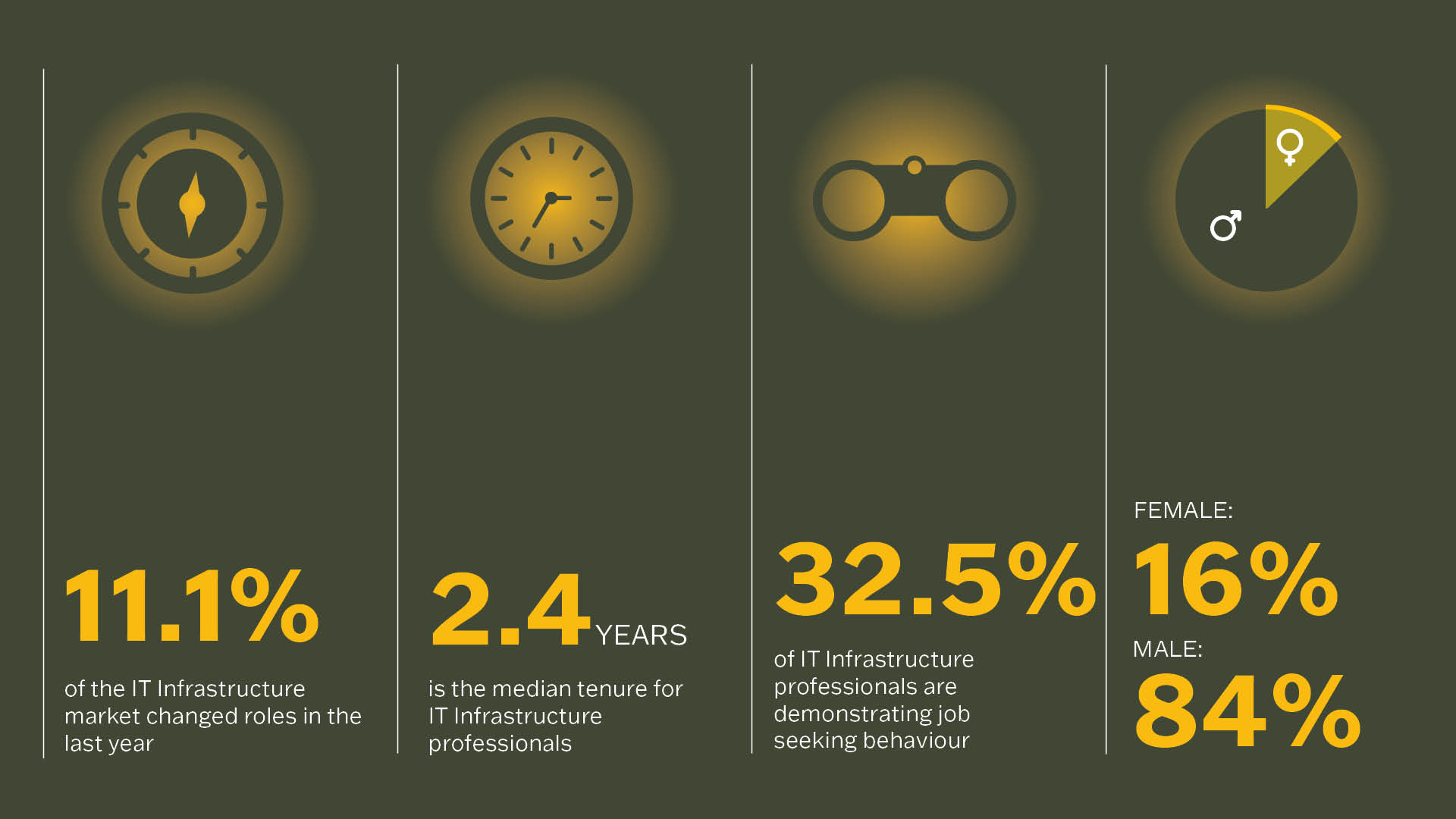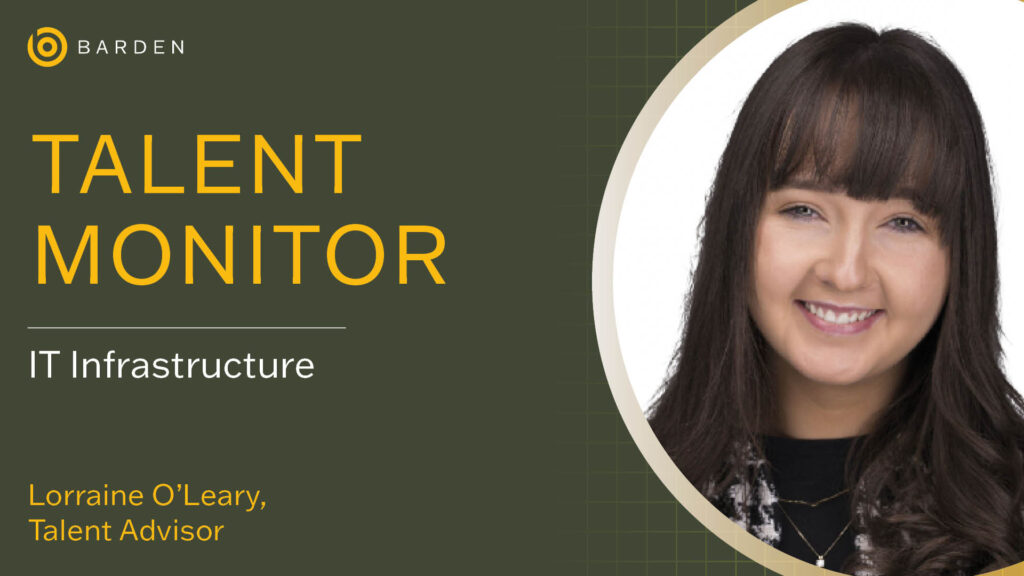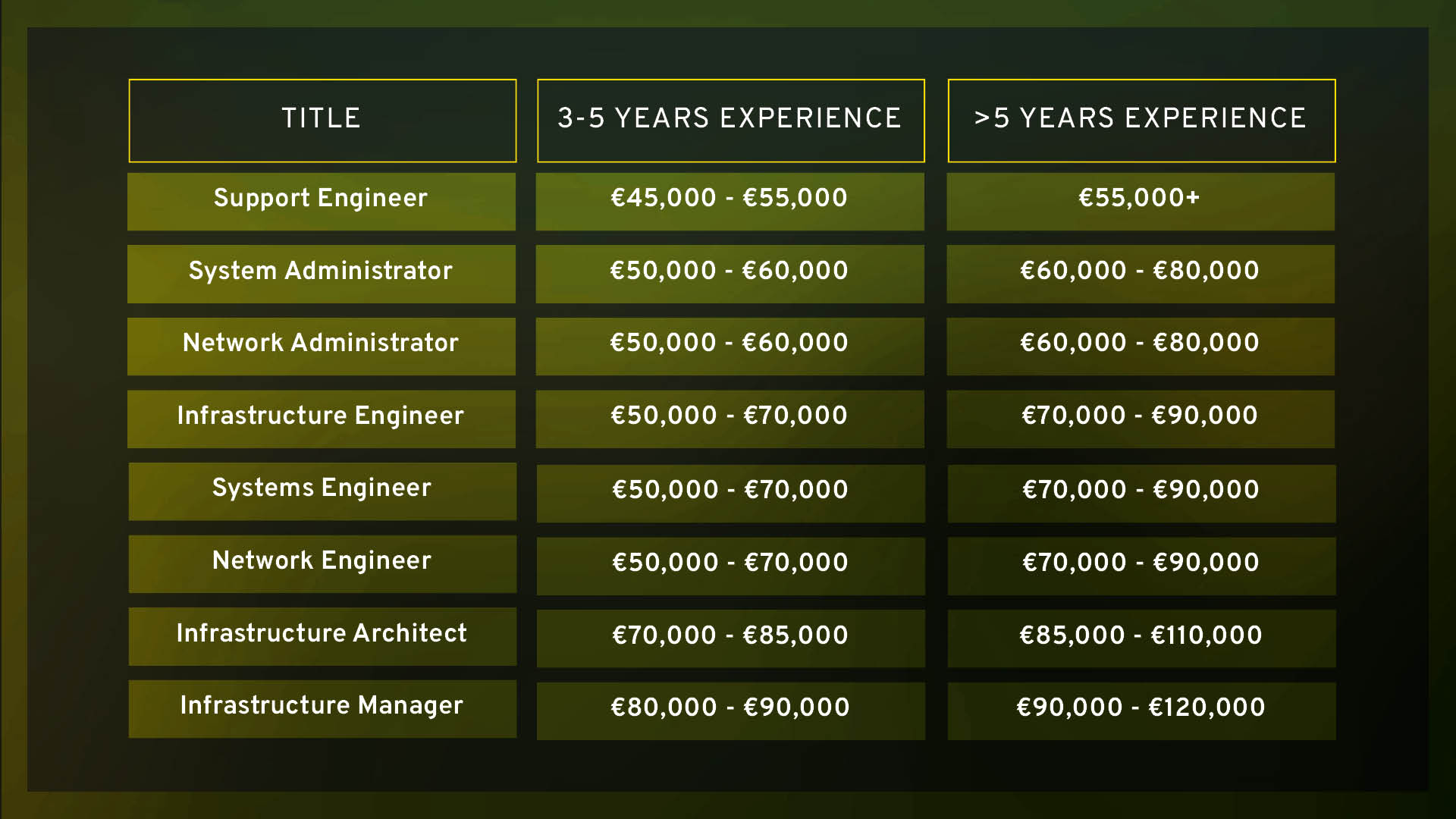The IT infrastructure talent market in Ireland is experiencing significant pressure, with demand for skilled professionals far outstripping supply. As businesses accelerate their digital transformation efforts and adopt cloud technologies, the need for experts capable of designing, managing, and securing IT systems has never been more critical.
IT infrastructure professionals are no longer confined to supporting roles – they are now pivotal to driving business innovation and ensuring operational resilience. However, the rapid pace of technological change and evolving business needs make navigating this landscape both challenging and rewarding.
Through our direct work with IT infrastructure professionals and employers across Ireland, here’s what we’ve observed:
#1 Base Salary
Salaries for IT infrastructure roles in Ireland vary widely, and for good reason. Here are the key factors that influence base salary:
- Certifications: Industry-recognised certifications such as AWS, Azure, or ITIL can substantially enhance earning potential.
- Organisation Size: Larger organisations, tend to offer more competitive salaries due to the complexity and scale of their IT infrastructure requirements.
- Supply & Demand: Skills in high demand but short supply, such as cloud computing, cybersecurity, and automation can directly influence salary.
- Location: Dublin typically leads in salary offerings, reflecting the concentration of tech hubs and multinational companies in the capital.
This is a very broad guideline and it’s important to take into account the specifics of each individual role. For bespoke advice please contact lorraine.oleary@barden.ie
#2 IT Infrastructure Lifecycle
IT infrastructure roles typically follow a continuum of activities, spanning planning, implementation, maintenance, and optimisation. Understanding this lifecycle is essential, as it underscores the complexity of the field and highlights the importance of context when evaluating roles and responsibilities.
While some roles encompass the entire lifecycle, others are more specialised, focusing on specific stages. Here’s a structured view of the continuum and the roles that align with each stage:

#3 Variables that matter
Job title alone often doesn’t capture the full scope of an IT infrastructure role. Here are the key variables that help define what a position truly entails:
Role Focus: Is the role operational and hands-on, or more strategic, focusing on planning and architecture?
Technical Focus: Does the role emphasise hardware, software, networking, or a combination of these?
Project-Based vs. Ongoing Support: Is the position centred on implementing new systems (project-based) or maintaining and optimising existing ones (ongoing support)?
Industry Requirements: Different sectors, such as finance, healthcare, and technology, come with unique challenges and regulatory demands that shape the role.
By considering these variables, employers and talent can gain a clearer understanding of what a specific IT infrastructure role entails, beyond the job title alone. This helps in matching the right skills and experience with the appropriate job functions.
#4 IT Infrastructure Talent Availability
Here’s what we’ve observed this quarter in the IT infrastructure talent pool in Ireland:

#5 Projected challenges for the next 12 months
For Employers:
- Cloud Migration: The transition to cloud-based systems presents both technical and organisational challenges, requiring the expertise to navigate this effectively.
- Cybersecurity: As cyber threats evolve, ensuring IT infrastructure remains secure will be a top priority.
- Sustainability: Organisations will face increasing demands to adopt greener IT practices, such as energy-efficient data centres and sustainable hardware solutions.
For Talent:
- Continuous Learning: Staying relevant in the field will require ongoing learning to keep pace with emerging technologies like AI, edge computing, and automation.
- Competition: High demand for specialised skills will lead to more competition for roles, making it essential for talent to differentiate themselves.
- Specialisation: Professionals may face the challenge of choosing between specialising in a niche area (e.g., cloud architecture) or developing a broader skill set to remain versatile.
In Barden, we understand that each team, role, and requirement is unique. If you would like to discuss what tactics and approaches would suit you, please feel free to contact Lorraine O’Leary our IT Infrastructure Talent Advisor & Recruiter here in Barden (lorraine.oleary@barden.ie); we’re where leaders go before they start looking for IT Infrastructure talent.
This information is accurate as per January 2026 and will be updated periodically. Data sources include Barden Proprietary Data, LinkedIn Analytics and other 3rd party data sources. If you have a request and would like real-time information to inform your hiring decisions, contact Lorraine O’Leary at lorraine.oleary@barden.ie


 Jump Back
Jump Back


